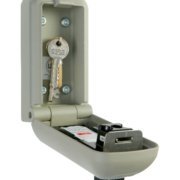Insulate Your Water Pipes Against the Big Freeze
Rugging up is essential for both people and water pipes during this icy snap, with pipes likely to freeze as temperatures continue to plummet. Boshers Holiday Home Insurance Specialists offer the following advice about fixing frozen pipes in your holiday homes, but with a little preventative investment people can avoid major costly repairs in the future. And it’s not too late to act, with more wintry weather predicted in coming months now is the time to take action.
The biggest problem with frozen pipes is not the initial loss of water supply but the subsequent thaw. Compared to water, ice needs more space – so when water freezes it expands, which means a frozen pipe often leads to a burst pipe and flooding.
• First, check the pipes for any signs of splitting. If you spot any damage, call a plumber. If you don’t get the pipes repaired now, you might suffer from flooding once the water thaws.
• If there are no splits, turn on the cold water tap nearest your internal stop tap (often located under the kitchen sink) and turn it to a position where the water flow would normally be slow.
• Turn off the stop tap to cut the water supply and use a gentle heat source, such as a hair dryer or electric fan heater, to gently direct the heat around the internal stop tap until the pipe thaws.
•Occasionally turning the stop tap completely on and off helps clear any blockages.
Do not use electricity, or a blow torch or naked flame where there is a risk of water escaping. Also do not light the boiler to thaw out a hot water or central heating system. If a pipe bursts, turn off the stop tap and leave a tap on to allow the thawed water to drain out. Remember to take the plug out of the sink and contact a qualified plumber.
As always, prevention is better than cure and there are a number of things that can be done to protect water pipes from the cold weather.
• Fix any dripping taps or overflows, a gentle trickle of water can freeze and block the overflow or waste pipe.
• Check that your internal stop tap is working by opening and closing it
• Ensure that pipes in cold and draughty areas like roof spaces, outbuildings and garages are well insulated with approved lagging materials. If this isn’t something you are able to do yourself, then a registered plumber can do this.
• Use waterproof insulation on all pipes exposed to the elements and ensure all lagging is kept dry. Wet lagging is useless.
• Insulate water tanks by covering them around and above but not underneath if the tank is in the roof or loft. Rising warm air from the home below will help prevent the water from freezing.
• Remember to insulate any outside taps or turn them off at the internal stop tap and leave the outside tap open to drain it.
• Keep windows closed and stop draughts near pipes in unheated areas, but remember you must provide ventilation for boilers, gas fires etc.
• Leave central heating on low or a frost-protect setting overnight, or when away for a few days.
• Ensure your central heating system is serviced regularly.
• Keep your plumber’s contact details handy in case of an emergency.
Remember if you do have a burst pipe, take action to reduce the damage to your holiday home and it’s content’s immediately, then report the incident to your holiday home insurer or broker in order as soon as possible. Claim procedures and contact details are to be found in your holiday home insurance policy document.
You may also find the following article of interest:
For further information on UK holiday home insurance visit the website page most relevant to you:






